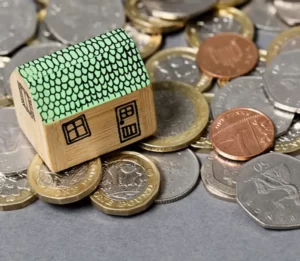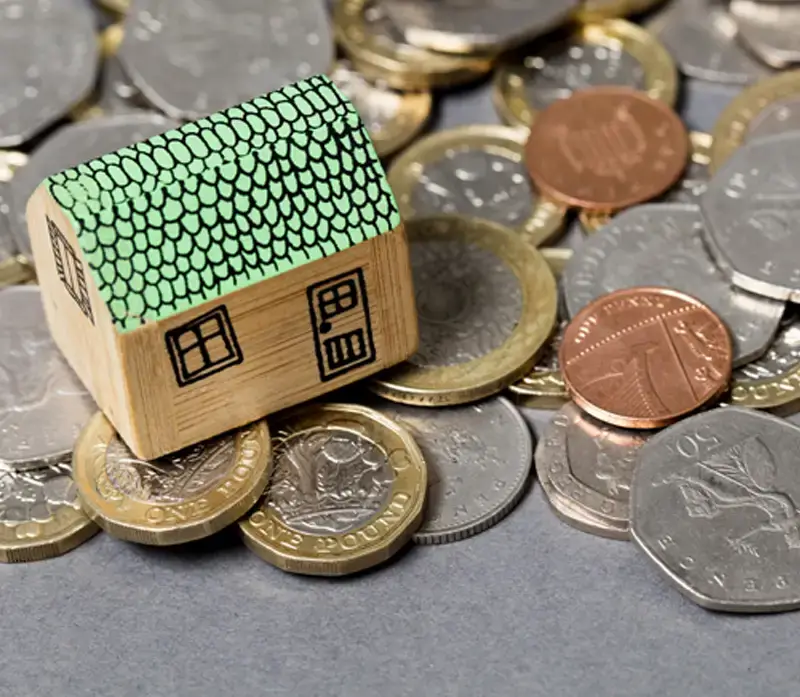Shared ownership
Shared ownership in the simplest form is part owning a home (leaseholder) with your housing association (landlord) and paying them rent for the share you do not own. Shared ownership gives first time buyers and those that do not currently own a home an opportunity to purchase a share in a new build or resale property.
The purchaser pays a mortgage on the share which they own and pays rent to a housing association on the remaining share. As the purchaser only needs a mortgage for the share they are purchasing, the amount of money required for a deposit is usually a lot lower than if they were purchasing outright!
Staircasing
Once you have lived in your Shared Ownership home for a certain period of time (as outlined in the terms of your lease), you can choose to buy further shares in your property. For example, if you initially purchased a 25% share in your home, you could then go on to buy an additional 25% down the line, and would then own 50% of the property. This process is known as staircasing.
In most cases, homeowners can staircase all the way to 100%. In this instance, the shared owner will not longer pay any rent, just their mortgage along with any service charges and ground rent.
What are the benefits of staircasing?
Over the years, the shared ownership market has enabled first time buyers, low income families and previous house owners to get on the housing market with a lower deposit.
There are many reasons why a current shared owner would want to increase the percentage they own in their home. For example:
- Pay less rent. By reducing the percentage of your property that you rent from your local housing association, your mortgage will increase, but you won’t be at the mercy of ever rising rental costs.
- Benefit from any increase in house prices. The greater the share you own, the more you will benefit from increased property prices. If you go on to buy 100% of your home, you will also no longer be required to give your housing provider the opportunity to market the property first at the time of sale.
- More mortgage choice. If you staircase all the way to 100% ownership, you will likely have access to a wider selection of mortgage options as you would be eligible for a standard mortgage, rather than a Shared Ownership mortgage. Standard mortgages tend to be cheaper.
- Freedom to sell. Own 100% of your property and when you want to sell your shared ownership property, you should be able sell it on the open market. However, if your property is still leasehold you may still have to offer it back to the housing association first. Make sure you check your lease. If you own less than 100% your housing association will need to find someone to buy your share from you.
- Security. Until you own 100% of the property, you’re a tenant in the eyes of the law which could mean you could possibly lose your property – and the money you’ve put into it – if you don’t keep up the rental payments.
FAQ’s
How is the share price calculated?
The share price is calculated on the current market value of the property. For example, if you wished to buy a further 20% and your property is valued at £500,000, the purchase price will be £100,000.
How can I purchase more shares?
Most people buy more shares by increasing their mortgage, but you can use cash if you have surplus money available. If your employment circumstances have improved, it is likely that you can increase the amount you can borrow.
What about my rent?
As your share of the property increases the rent you pay decreases. Remember you may still need to pay ground rent and service charges if you own a flat.
What is the minimum share I can buy?
The minimum share you can purchase is normally 10% but you will need to refer to your lease to confirm this. The lease may also restrict the number of times you can staircase.
Alternatively, you can staircase to 100% if affordable and your lease permits this.
What costs will I have to pay?
The initial appraisal offered is usually free of charge and without obligation, but each mortgage adviser costs vary so please check with your specific lender.
If you do decide to staircase then you are likely to incur the costs listed below.
- Valuation fee (payable upfront and non-refundable)
- Peabody administration fee (normally payable on completion)
- Solicitor fees
- Mortgage fees
You may also be required to pay Stamp Duty Land Tax. Your solicitor can provide further advice on this matter.
Do I have to staircase to 100% before selling my home?
No – you can choose to sell your Shared Ownership home at any time, regardless of whether you have staircased or not.
If you choose to sell your home, you will first need to contact your housing association to make them aware before obtaining an independent valuation prior to sale to determine the current value of the property.

